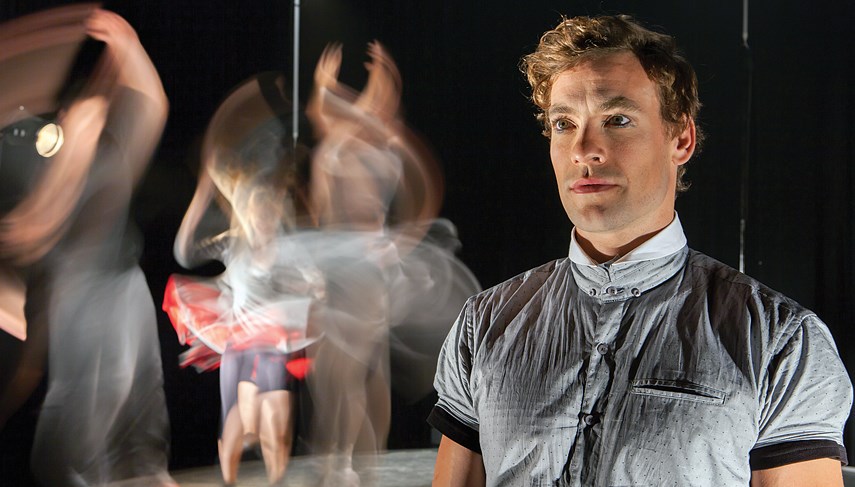DynamoO Théâtreâs What If Romeo & Juliet . . . Presentation House Theatre, Jan. 25-27. .
Those beautiful, hasty, star-crossed kids first died about 422 years ago.
Since then Romeo and Juliet have met their respective ends in theatres and high school English classes. Their story has been transformed/updated/butchered to include balletic leaps on New Yorkâs West Side, gunfights in Verona Beach, verboten scampering in Africaâs savannah, pizzeria bombings in Little Italy, and the rumbly narration of heavy metal icon Lemmy from Motorhead.
But whatever the detour, the grim destination remained. And who could forget the poison, the tomb, the end?
Well, writer/director Jackie Gosselin for one.
Sheâd read the play as a teenager and was captivated by the words, she says, recalling the way the playâs poetry stirred the âpain of love.â
But once nestled in Gosselinâs subconscious, the playâs DNA began to alter. The romance grew stronger while the poison ebbed away as though overcome by antibodies.
Years later, when she began the process of bringing Romeo and Juliet to the stage Gosselin didnât consider the climax until speaking with Presentation House Theatre artistic director Kim Selody.
But what about the two dead teenagers at the end? Selody wanted to know.
âI said, âOh my God, I forgot,ââ she laughs. âI just wanted to put on the stage the love between two children.â
The essence of tragedy is the realization that comes too late: I am doomed and itâs because of the stuff I did. Romeo and Juliet is a tragedy is for the Montague and Capulet parents who realize their obedience to the laws of rivalry destroyed who they love and love itself. But for Romeo and Juliet themselves, itâs a disaster; unburdened by insight or epiphany.
But, Gosselin wondered, what if it didnât have to end that way?
The question stayed with her for years as she searched for the nerve to adapt â and ultimately rewrite â William Shakespeare.
Montrealâs DynamO Théâtre is not a âtext company,â Gosselin says, explaining her reticence.
And for a company that tells stories with acrobatic movement, Shakespeare seemed protected by an untouchable aura, adds theatre general manager Chloe Besner.
But the feeling that she didnât have âthe rightâ to stage Romeo and Juliet changed after reading about Rufus Wainwright. The Canadian singerâs use of Shakespeareâs sonnets as the basis for an album signalled something important about Shakespeare, she remembers. His work belonged to everyone.
âI must invite Shakespeare in DynamO Theatre,â she decided. âShakespeare told me: âItâs OK.ââ
But even with the Bardâs permission, there were still 300 hours of work ahead.
A circus/theatre company writes with movement, Besner explains.
âThe words are not in someoneâs head but in someoneâs body. So we need those bodies to be on stage to express those words.â
The stage is sparse except for two staircases representing the feuding families as well as the masculine and the feminine, Besner explains. The actors use that set âlike a playgroundâ during the writing process while the musicians compose the showâs soundtrack. One informs the other, and then the other informs the one.
Gosselin guided the action and figured out the flourishes, such as incorporating Shakespeare himself.
The bardâs disembodied voice grants the production a dramatic dispensation from the rules that govern Romeo and Juliet.
What If Romeo & Juliet . . . Ìýtakes place over five sequences: the party where they catch one anotherâs eyes, the balcony where they speak the playâs most famous words, their farewell, the swordfight, and, of course, the tomb.
But inside that tomb, the play diverges.
What if they can decide for themselves? Gosselin asks. What if they can reject the impositions of society and escape being sacrificed on the altar of their manipulating, warlike parents?
âI would like to open the door on Shakespeare to a young audience,â Gosselin says. When you perform for children, she adds, you have to give them light and hope.
âThe children are intelligent,â she says. âWe can give them the choice between the violence and peace.â
Ìý


